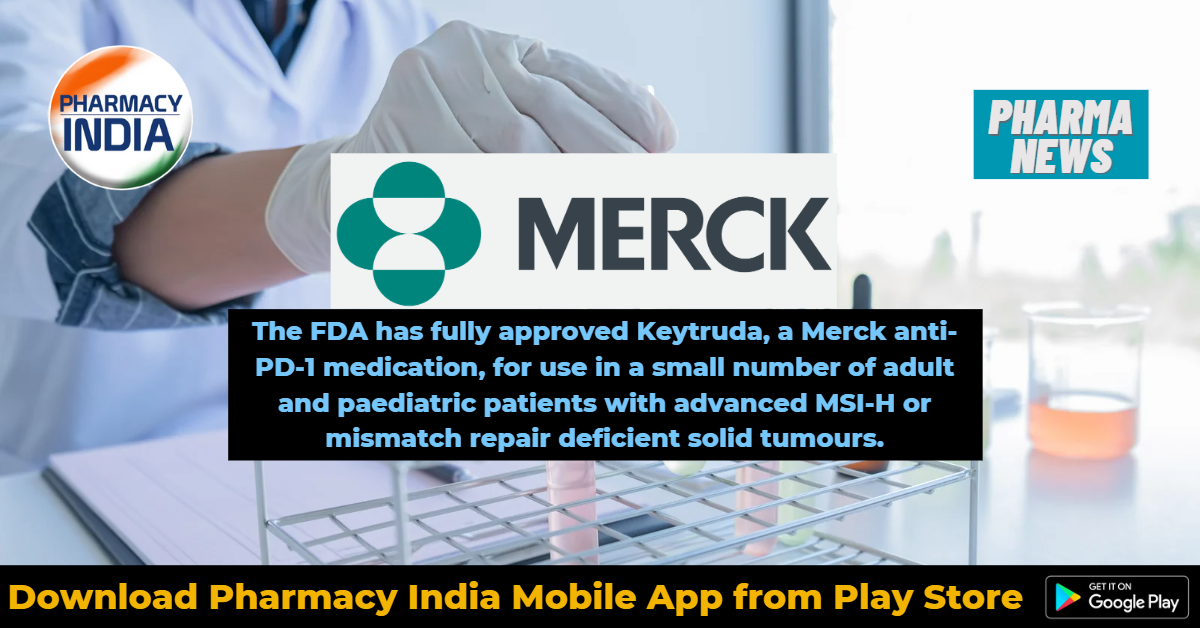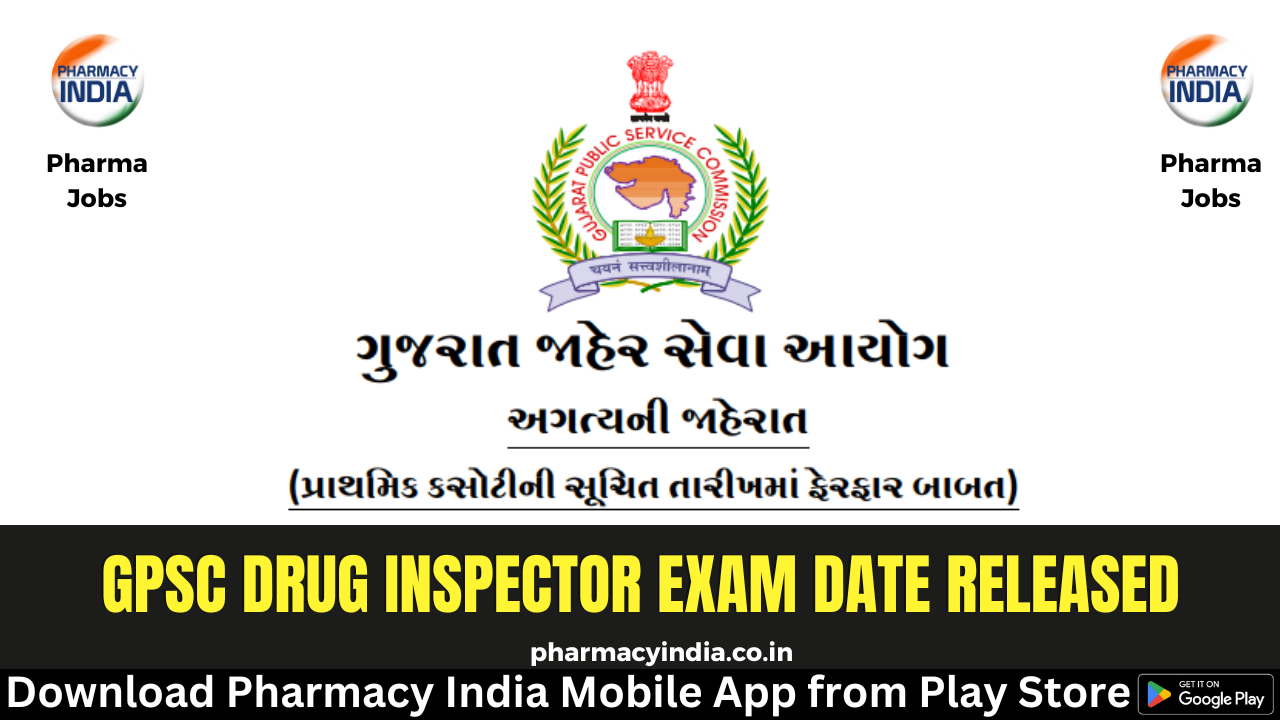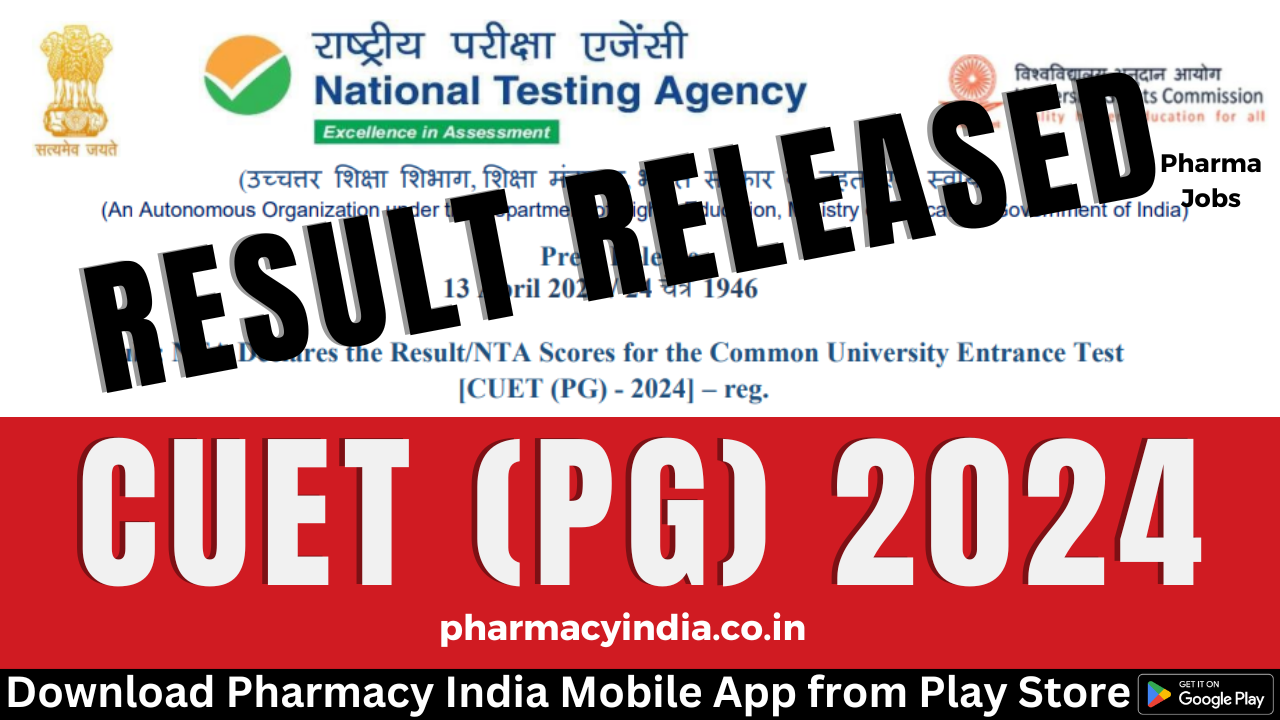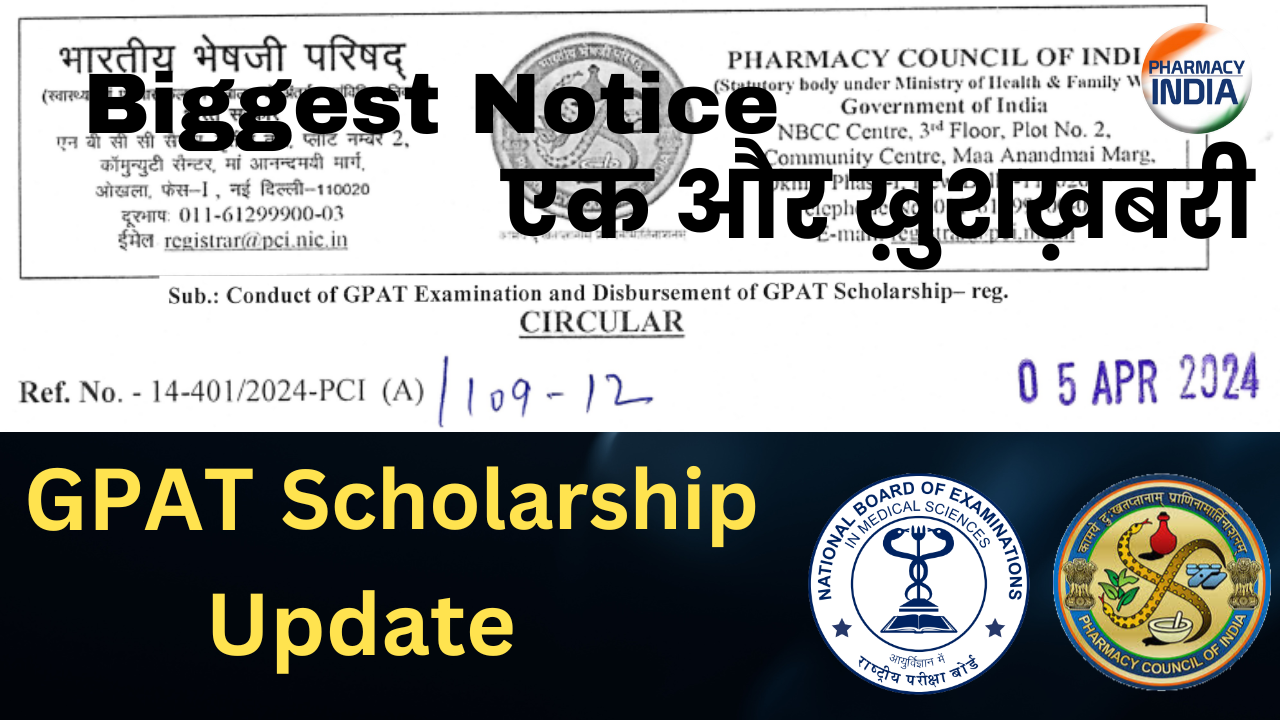The US Food and Drug Administration (FDA) has fully approved Keytruda, Merck’s anti-PD-1 therapy, for the treatment of adult and paediatric patients with unresectable or metastatic microsatellite instability-high (MSI-H) or mismatch repair deficient (dMMR) solid tumours, as determined by an FDA-approved test, that have progressed after prior treatment and who have no satisfactory alternative therapies. Merck, known as MSD outside of the United States and Canada, Results from the phase 2 KEYNOTE-158, KEYNOTE-164, and KEYNOTE-051 trials, which included data on 504 adult and paediatric patients with more than 30 different cancer types, were used to support the conversion from an accelerated to a full (regular) approval. Regardless of the type of solid tumour, this is the first complete approval for an immunotherapy based on a predictive biomarker.
Dr. Luis A. Diaz, Jr., director of the Division of Solid Tumour Oncology at Memorial Sloan Kettering Cancer Center, stated that its approval “reinforces the crucial role of Keytruda in some patients with MSI-Hor dMMR solid tumours facing a variety of malignancies.” The need for biomarker testing to identify patients who might benefit from this medication is further supported by these data. Adverse immune-mediated reactions, which can be serious or lethal, can happen in any organ system or tissue and can influence many bodily systems at once. Pneumonitis, colitis, hepatitis, endocrinopathies, nephritis, dermatologic reactions, solid organ transplant rejection, and complications from allogeneic hematopoietic stem cell transplantation are just a few examples of immune-mediated adverse reactions that can happen during or after Keytruda treatment. Not all severe and deadly immune-mediated adverse events are listed here; only the most significant ones are. To guarantee the safe administration of Keytruda, early detection and management of immune-mediated adverse events are crucial. Keytruda should be withheld or totally terminated depending on how severe the side effect was, and corticosteroids should be supplied if necessary. Keytruda injection-related side effects might also be severe or fatal. When given to a pregnant woman, Keytruda has the potential to harm the foetus because of the way it works.
According to Dr. Scot Ebbinghaus, vice president of global clinical development at Merck Research Laboratories, “Today’s approval builds on the 2017 accelerated approval of Keytruda as the first immunotherapy with a tumour agnostic indication and supports the role of Keytruda as an effective immunotherapy option based on a pan-tumor predictive biomarker.” This accomplishment highlights Merck’s dedication to individualised patient care and biomarker research over a long period of time. Data from three multicenter, non-randomized, open-label, multi-cohort trials served as the foundation for the complete approval. 124 patients with advanced MSI-H/dMMR colorectal cancer who had progressed after receiving fluoropyrimidine, oxaliplatin, or irinotecan with or without anti-VEGF/EGFR mAb-based therapy were enrolled in the KEYNOTE-164 (NCT02460198) study. 373 patients with advanced MSI-H/dMMR non-colorectal malignancies who experienced disease progression after prior therapy were enrolled in KEYNOTE-158 (NCT02628067). Patients with MSI-H/dMMR tumours were either proactively enrolled (Cohort K) or retrospectively identified in one of ten solid tumour cohorts (Cohorts A-J). Seven paediatric patients with MSI-H/dMMR tumours were enrolled in KEYNOTE-051 (NCT02332668). Patients with autoimmune diseases or illnesses that required immunosuppression were not eligible for any of the trials. Regardless of histology, the polymerase chain reaction (local or central) or immunohistochemistry (local or central) methods were used to determine the MSI or MMR tumour status.
Every three weeks, Keytruda 200 mg was intravenously provided to adult patients (and every three weeks, 2 mg/kg was given to paediatric patients), up until unacceptable toxicity, disease progression, or a maximum of 24 months. Tumor status was evaluated in KEYNOTE-164 and KEYNOTE-158 every nine weeks during the first year and every 12 weeks after that. In KEYNOTE-051, tumour status was evaluated every eight weeks for the first 24 weeks, then every 12 weeks after that. The primary efficacy outcome measures were the objective response rate (ORR) and duration of response (DOR), which were determined by a blinded independent central review using RECIST v1.1 (modified in KEYNOTE-158 to follow a maximum of 10 target lesions and a maximum of five target lesions per organ) and by the researcher using RECIST v1.1 in KEYNOTE-051. During a median follow-up period of 20.1 months, Keytruda showed an ORR of 33.3% (95% CI, 29.2-37.6) in a pooled analysis of the three trials, with a full response rate of 10.3% and a partial response rate of 23.0%. (range, 0.1 to 71.4 months). 77% and 39%, respectively, of the responding patients (n=168) had responses that lasted 12 months or more and 36 months or more. (Range: 1.9+ to 63.9+ months) The median DOR was 63.2 months.
With a DOR ranging from 4.4 to 58.5+ months, Keytruda showed an ORR of 34% (95% CI, 26%-43%) in patients with MSI-H/dMMR colorectal cancer (n=124). Patients with additional MSI-H/dMMR non-colorectal solid tumours (n=380) such as endometrial cancer, gastric or gastroesophageal junction cancer, small intestinal cancer, brain cancer, ovarian cancer, biliary cancer, pancreatic cancer, sarcoma, breast cancer, cervical cancer, neuroendocrine cancer, prostate cancer, adrenocortical cancer, and mesothelioma, were also tested Keytruda showed an overall ORR of 33% (95% CI: 28%-38%) with a duration of response in patients with thyroid cancer, small cell lung cancer, bladder cancer, salivary cancer, renal cell cancer, and other cancers (including anal cancer, head and neck squamous cell cancer, nasopharyngeal cancer, retroperitoneal cancer, testicular cancer, vaginal cancer, vulvar cancer, appendiceal adenocarcino.
The median time spent being exposed to Keytruda was 6.2 months in the studies KEYNOTE-158 and KEYNOTE-164 (range, 1 day to 53.5 months). The average time spent exposed in KEYNOTE-051 was 2.1 months (range: 1 day to 25 months). Microsatellite instability (MSI) and dMMR are biomarkers that have been found in many different types of cancer and can be hereditary or random. A microsatellite is a brief, repeated sequence of DNA. MSI is a modification that takes place in the DNA of some cells, such as cancer cells, in which the amount of repeated DNA bases is different from what it was when the microsatellite was inherited. dMMR refers to cells that contain mutations in specific genes that are responsible for fixing errors created when DNA is copied into a cell during cell division. When a cell is unable to correct errors made during that division process, MSI-H and dMMR may develop.
The mechanism of action of Keytruda, an anti-programmed death receptor-1 (PD-1) medication, is to improve the body’s immune system’s capacity to identify and combat tumour cells. Keytruda is a humanised monoclonal antibody that prevents the interaction between PD-1 and its ligands, PD-L1 and PD-L2, causing T lymphocytes to become activated and potentially harmful to both healthy and tumour cells. The biggest clinical research programme for immuno-oncology is run by Merck. Now, Keytruda is being studied in more than 1,600 trials that cover a wide range of cancer types and therapeutic contexts. The Keytruda clinical programme aims to comprehend the role of Keytruda across cancer types and the variables that may indicate whether a patient will benefit from Keytruda treatment, including looking into a number of distinct biomarkers.
We at Merck are dedicated to promoting access to our cancer medications. Many programmes are offered by Merck to assist eligible patients who are prescribed Keytruda in getting access to our anti-PD-1 medication. For patients receiving Keytruda, the Merck Access Program offers reimbursement support, including information to help with out-of-pocket costs and co-pay assistance for qualified patients.







